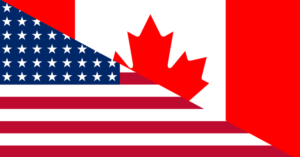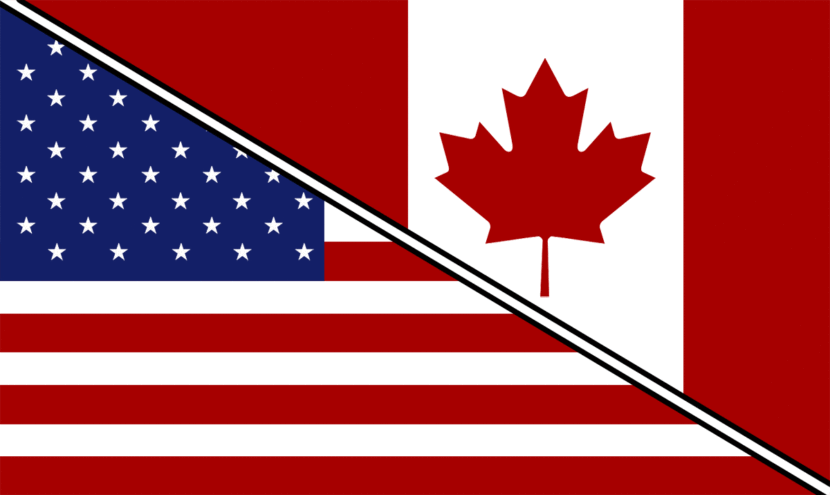Immigration to Canada from Texas

Immigration to Canada from Texas: A Complete 2025 Guide
Introduction
In recent years, a growing number of Texans have been looking northward toward Canada as a new place to live, work, study, or retire. Whether it’s for better healthcare, educational opportunities, political stability, or simply a change of scenery, Canada offers an attractive destination with its high quality of life, strong economy, and welcoming immigration policies.
Immigration from Texas to Canada is not just possible — it's happening at a steady pace. If you're a Texan curious about making the move, this comprehensive guide will walk you through why people are choosing Canada, the immigration options available, and how to start your journey.
Why Texans Are Considering Moving to Canada
There are several reasons why people from Texas — a state known for its size, prosperity, and independent spirit — might want to move to Canada:
-
Universal Healthcare: Canada offers publicly funded healthcare, reducing personal medical expenses.
-
Political Climate: Some individuals seek a different political environment.
-
Educational Opportunities: Canada's universities are globally respected and often more affordable than U.S. options.
-
Economic Opportunities: Canada’s economy is strong, particularly in sectors like technology, healthcare, and natural resources.
-
Quality of Life: High living standards, low crime rates, and beautiful natural landscapes.
-
Family Reunification: Some Texans have family members already living in Canada.
Popular Immigration Pathways for Texans: Immigration to Canada from Texas
Depending on your situation — whether you want to study, work, join family, or retire — there are multiple immigration programs to consider:
1. Express Entry System
The Express Entry system is the most popular pathway for skilled workers who want to become permanent residents of Canada.
-
Federal Skilled Worker Program
-
Federal Skilled Trades Program
-
Canadian Experience Class (CEC): For those who have already worked in Canada on a temporary visa.
-
Age
-
Education
-
Work Experience
-
Language Ability
-
Adaptability (such as having relatives in Canada)

Texans Tip: Scoring well on English language tests (like IELTS) and having a strong educational background can significantly boost your CRS score.
2. Provincial Nominee Programs (PNPs)
Each province in Canada can nominate individuals who have the skills needed in their local economy.
Popular provinces for immigrants include:
-
Ontario (Toronto)
-
British Columbia (Vancouver)
-
Alberta (Calgary, Edmonton)
-
Nova Scotia (Halifax)
Many PNPs are aligned with the Express Entry system, giving you a boost in your CRS score if nominated.
3. Study Permits and Post-Graduation Work Permits (PGWP)
Studying at a Canadian university or college can be a smart pathway to permanent residency:
-
Apply for a Study Permit and Work Visa After Graduation
-
Work in Canada for one year, then apply through Canadian Experience Class (CEC) under Express Entry.
Top universities like the University of Toronto, University of British Columbia, and McGill University welcome thousands of international students each year.
4. Family Sponsorship
If you have close family members (like a spouse, parent, or child) who are Canadian citizens or permanent residents, they may be able to sponsor you for permanent residency.
Eligibility depends on: Immigration to Canada from Texas
-
Relationship to the sponsor
-
Sponsor’s financial ability to support you
-
Meeting medical, criminal, and background checks
5. Start-Up Visa Program
Entrepreneurs from Texas can move to Canada by launching an innovative business through the Start-Up Visa Program.
You must: Immigration to Canada from Texas
-
Have a qualifying business idea
-
Secure support from a designated Canadian investor organization
-
Meet language requirements
-
Have enough settlement funds
Canada is actively looking for innovative entrepreneurs to boost its economy, especially in technology sectors.
6. Retirement in Canada
Technically, Canada doesn’t have a specific "retirement visa," but you can apply as a visitor, or move permanently if you qualify through other streams (such as family sponsorship or investment immigration).
Retiring in Canada means enjoying excellent healthcare, beautiful nature, and a slower pace of life in places like British Columbia, Nova Scotia, or Prince Edward Island.
Key Requirements for Texans Immigrating to Canada
Regardless of the program you choose, some general requirements include:
-
Language Proficiency: You must prove your English (or French) language skills through standardized tests like IELTS, CELPIP, or TEF.
-
Educational Credential Assessment (ECA): If you studied in Texas, you’ll need to have your degree evaluated by an approved Canadian organization.
-
Proof of Funds: Most programs require you to demonstrate enough savings to support yourself and your family.
-
Medical Exam: You must pass a basic medical examination.
-
Police Certificate: You must provide police clearance showing no serious criminal history.

How to Start: Step-by-Step Immigration Process: Immigration to Canada from Texas
Determine Your Eligibility
-
Use the Canadian government’s online tools or consult with an immigration consultant.
-
Choose the Right Program
Express Entry, PNPs, Family Sponsorship, or another path. -
Gather Documents
Get your passport, educational credentials, language test results, and proof of funds ready. -
Create an Express Entry Profile (if applicable)
-
Receive an Invitation to Apply (ITA)
If your score is high enough, you will receive an ITA for permanent residency. -
Submit Application
Complete forms, upload documents, and pay fees. -
Undergo Medical and Security Checks
Complete biometrics, medical exams, and background checks. -
Wait for a Decision
Processing times vary but are typically between 6 to 12 months. -
Prepare for Your Move
Upon approval, receive your Confirmation of Permanent Residence (COPR). -
Land in Canada
Activate your PR status upon arrival!
Cost of Immigration: Immigration to Canada from Texas
Here’s an overview of the typical costs:
| Item | Approximate Cost (USD) |
|---|---|
| Language Tests (IELTS/CELPIP) | $250–$300 |
| Educational Credential Assessment (ECA) | $200–$250 |
| Express Entry Application Fees | $1,325 |
| Permanent Residence Fee | Included in above |
| Biometrics Fee | $85 |
| Medical Exam | $100–$300 |
| Proof of Funds (for settlement) | $13,757 for a single applicant (2025 rates) |
Note: Costs vary depending on family size and specific program requirements.
Life in Canada vs. Texas: Key Differences
| Aspect | Texas | Canada |
|---|---|---|
| Healthcare | Mostly private | Universal public healthcare |
| Taxes | Lower income taxes | Higher income and sales taxes |
| Weather | Hot, dry summers | Cold winters, temperate summers |
| Education | High cost for university | Lower tuition, world-class universities |
| Gun Laws | Very lenient | Stricter regulations |
| Diversity | High in cities like Houston, Dallas | High nationwide |
Adapting to Canadian winters is often one of the biggest challenges for Texans used to warm climates, but many find the beautiful snowy landscapes worth it.
Common Challenges and How to Overcome Them
-
Homesickness: Stay connected to friends and family via technology and join expat communities in Canada.
-
Employment: Gain Canadian credentials and network heavily to secure jobs faster.
-
Cultural Adjustment: Embrace multiculturalism and participate in local events and festivals.
Popular Canadian Cities for Texans: Immigration to Canada from Texas
-
Toronto, Ontario: Canada's biggest city and financial capital.
-
Vancouver, British Columbia: Tech hub, stunning nature, milder winters.
-
Calgary, Alberta: Big oil and gas sector, low taxes.
-
Montreal, Quebec: Rich culture, lower cost of living, French language an asset.
-
Halifax, Nova Scotia: Affordable, relaxed lifestyle on the Atlantic coast.
Many Texans find Alberta’s economy and culture (especially in Calgary and Edmonton) somewhat similar to Texas, making it a comfortable landing spot.

Immigration Consultants: Do You Need One?
While you can apply on your own, many Texans hire a Regulated Canadian Immigration Consultant (RCIC) to:
-
Save time
-
Avoid mistakes
-
Increase chances of approval
-
Navigate complex cases (like inadmissibility issues)
Make sure your consultant is officially licensed through Canada’s College of Immigration and Citizenship Consultants (CICC).
Conclusion
Immigrating to Canada from Texas is an exciting adventure filled with opportunity. Whether you're seeking a fresh start, better healthcare, educational prospects, or simply a different lifestyle, Canada offers a welcoming environment for newcomers.
By understanding the programs available, preparing your documents carefully, and following the right steps, you can successfully make the leap from the Lone Star State to the Great White North.
Ready to make the move? Your Canadian dream awaits!
In case, if you need legal help with Immigration to Canada from Texas or other states in the US, please fill in application below or contact us directly.

